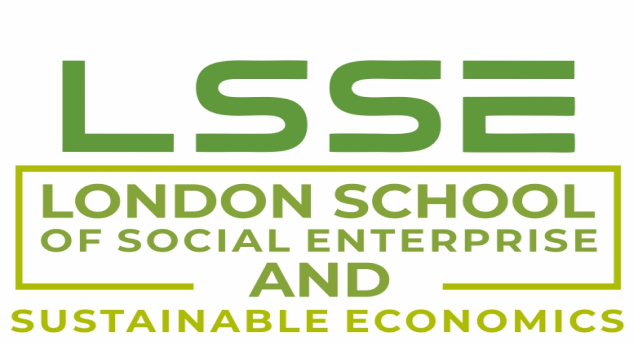Modern Slavery Statement
This accessibility statement applies to London School Of Social Enterprise Ltd of 128B – 128C Brixton Hill, Greater, Brixton, London SW2 1RS with Company number 12523857 and the operator (s) of lsseedu.co.uk (hereinafter “LSSE” or “we” or “us”).
At LSSE we are relentless in our pursuit of delivering quality and excellence for our clients. We use our professional expertise with integrity and in a responsible manner, aligning our actions and decisions to the highest standards of business conduct and being alert to situations that pose ethical questions. Modern slavery is a crime and a violation of fundamental human rights.
This statement underlines our commitment to ensuring modern slavery is not taking place anywhere in and around our organisation.
This statement is made pursuant to section 54(1) of the Modern Slavery Act 2015 (the “Act”) and constitutes our slavery and human trafficking statement.
Business and Organisational Structure
LSSE is a Private company limited by guarantee without share capital registered in England and Wales (registered number 12523857 ).
We are providing:
- Technical and vocational secondary education
- Post-graduate level higher education
- Educational support services.
Modern slavery risks in our supply chains and other areas
We buy a wide range of goods and services, in accordance with procurement law and our ethical sourcing policies. These include services and supplies, furniture and stationery, electronics, food and catering supplies, travel services, books and printing, and waste management services.
Due to controls and systems LSSE has in place to manage recruitment and subcontracting, the risk of modern slavery on our company is low. We recognise, however, that there are risks in the supply chains of goods and services we procure. Additionally, given the global reach of our company, we recognise that there are potential risks of modern slavery related to our international activities, especially when located in high risk countries.
By its very nature, modern slavery is hard to detect and is often hidden within ‘legitimate’ industries. We aim to work collaboratively with other education providers, civil society organisations and government agencies to share information and mitigate risks.
Our practices
We are rigorous in checking that all new joiners have the right to work in the UK. Where it is necessary to hire agency workers or contractors, our staff are directed to specified, reliable agencies that have been vetted through the LSSE ‘s rigorous procurement procedures and meet our imposed selection criteria regarding their employment policies and practices. For example, agencies are asked to identify any sub-contractors used, and to promote ‘fair work’ practices, as appropriate. Contracted workers that regularly work on-site are required to be paid the living wage as defined by the Living Wage Foundation.
Our Equal Opportunities Policy and Code of Conduct promote an enabling and inclusive environment in which all staff members are treated with dignity and respect. Bullying, harassment and discrimination are known to be unacceptable. We are committed to fair, progressive and ethical business practices.
LSSE adheres to The Public Interest Disclosure Act 1998 and implements its own Anti-Fraud, Corruption & Bribery Policy regarding concerns about potential corruption, fraud or other unlawful practices within LSSE. If a case of modern slavery were to be suspected on site, this would be fully investigated and appropriate disciplinary action would be taken against any member of staff found to have acted in breach of any relevant policies.
Managing Risk in our Supply Chains
We have a published a Procurement Strategy which sets out our principles and practices for the acquisition of goods, services and building works and outlines our ethical procurement approach.
We recognise there are risks of modern slavery in the supply chains for all types of goods and services, and that in many cases, whether exploitation is taking place or not is unknown. However, we have also identified some key known risk areas related to our supply chains, highlighted by research and media reports, and are using these tools and procedures to mitigate these risks.
In March 2020 we published and began using new terms and conditions for the purchase contracts which require suppliers to: a) comply with the UK Modern Slavery Act 2015 and all other applicable laws regarding anti-slavery and human trafficking; b) maintain policies to ensure compliance; c) perform due diligence on their supply chains and include anti-slavery and human trafficking provisions in such supply contracts and; d) notify us of any breaches and provide us with annual compliance reports.
We have also produced guidance for our suppliers regarding our social responsibility and sustainability priorities, including modern slavery. If evidence were found indicating modern slavery in our supply chains, we recognise our responsibility to work with others to address this and reserve the right to terminate contracts where serious violations are discovered.
Awareness and training
We recognise our responsibility to raise awareness on this important issue, and to train some groups of staff specifically on modern slavery risks and best practice. We have done so and continue promoting and embedding fair trade.
We have continued to promote an online training course for staff, to raise awareness about what modern slavery is, how to recognise signs of exploitation and what steps should be taken if a staff member suspects exploitation is taking place.
To extend our training further, a business-wide communication is published annually informing all colleagues of our Modern Slavery procedures.
We are continually reviewing our systems to ensure we have robust policies and processes in place to mitigate the risk of Modern Slavery.
This statement was approved on [date] and signed by Hareter Babatunde Oralusi,
[Insert Signature]


